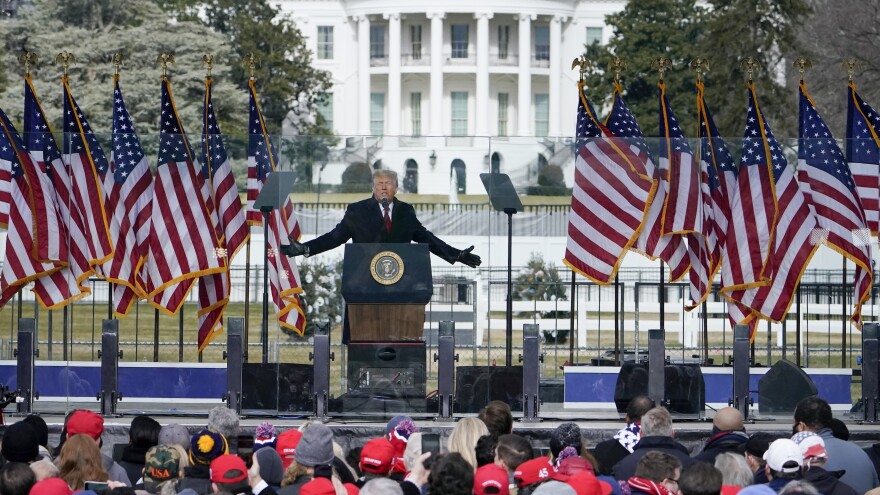Former President Donald Trump is not immune from being sued over the Jan. 6 attack on the U.S. Capitol, a federal appeals court ruled Friday, clearing the way for lawsuits filed against him in connection with the deadly riot.
The ruling from a three-judge panel on the U.S. Court of Appeals for the D.C. Circuit stems from several lawsuits brought by Capitol Police officers and Democratic members of Congress seeking civil damages from Trump related to the events of Jan. 6, 2021.
Trump has sought to have the cases dismissed, arguing in part that as president he enjoyed absolute immunity from civil lawsuits. The question before the appeals court was whether Trump's actions leading up to Jan. 6, 2021, and on the day itself were official acts of the presidency and indeed shielded from liability.
In its ruling, the court said the answer, for now, is no.
The president, said Judge Sri Srinivasan in the written opinion, "does not spend every minute of every day exercising official responsibilities. And when he acts outside the functions of his office, he does not continue to enjoy immunity from damages liability just because he happens to be the President."
A first-term president's reelection campaign, the opinion said, is not an official presidential act.
"He is acting as an officer-seeker, not officer-holder — no less than are the persons running against him when they take precisely the same actions in their competing campaigns to attain precisely the same office," the opinion said.
Trump has tried to argue that a president's speech on a matter of public concern, such as allegations of vote fraud, should be considered an official act of the president.
The court rejected that argument.
"When a sitting president running for re-election speaks in a campaign ad, that is usually on a matter of public concern. Yet he does so in an unofficial, private capacity as office-seeker, not an official capacity as office-holder," the opinion said. "Actions taken in an unofficial capacity cannot qualify for official-act immunity."
A Trump campaign spokesman did not immediately respond to a request for comment.
The court's ruling is not necessarily the final say on this question. The opinion itself leaves the door open for Trump to raise similar challenges — and demonstrate he was indeed acting in his official capacity — as the lawsuits proceed at the District Court level.
Trump also could appeal Friday's ruling.
The former president has made a similar presidential immunity claim regarding the criminal prosecution he's facing, brought by Justice Department special counsel Jack Smith in connection with Trump's efforts to overturn the 2020 presidential election. The District Court has yet to rule on Trump's motion in that case.
Copyright 2023 NPR. To see more, visit https://www.npr.org.



